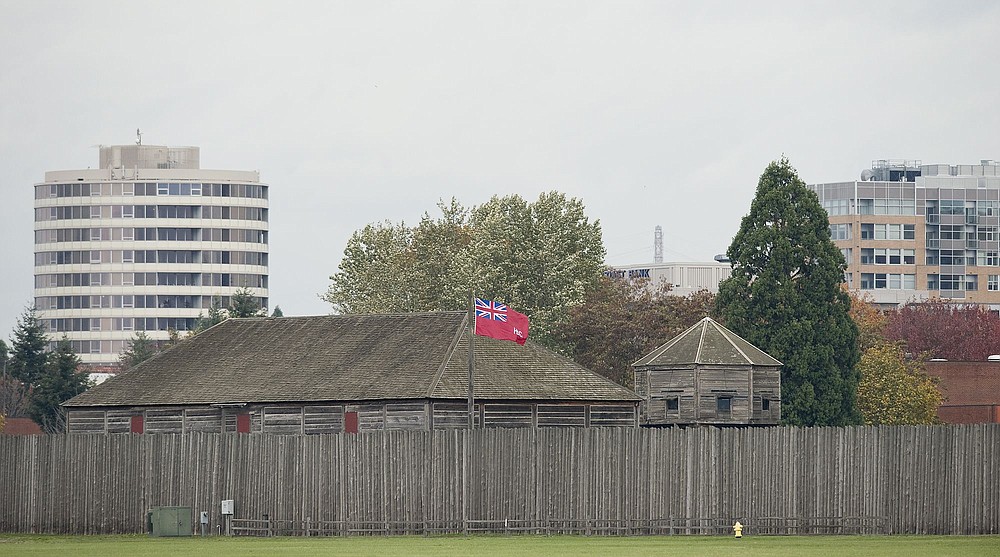What would it be like to live in a town whose name begins with “Fort”?
Why not ask some of the 1.7 million Americans who already do?
As some Vancouver residents and businesspeople push to reboot the long-standing debate about renaming their city, The Columbian called a few of the country’s 59 “Fort” municipalities to talk about how they think their towns’ names affect tourism, business and everyday life.
Tourists always, always want to see the fort. Even if there never was one.
That’s what happened in Fort Dodge, Iowa (pop. 14,061), said Dan Payne of the Fort Dodge Convention and Visitors Bureau. A fort was supposed to be built nearby during the wars for the Great Plains, but the plan fell through.
“There really never was a fort in Fort Dodge,” Payne said. “They never really built the fort.”
But that didn’t stop the people of Fort Dodge, who live about 90 minutes north of Des Moines.
In 1964, they raised some cash and built a stockade-style fort anyway.
“Which is kind of B.S. when you think about it,” Payne said. “That would not have been what the fort looked like here.”
No matter. “Fort Dodge” now gets almost 10,000 tourists a year, Payne said.
We’re not so special — every town has some little cross to bear. Sure, the planet has only one Fort Payne, in northeast Alabama.
But residents of the 14,061-population town in DeKalb County, Ala., have to correct people who confuse it with DeKalb County, Ga., a few hours away.
Both counties were named for Revolutionary War hero Baron Johann DeKalb.
“Here in Alabama, we have the same towns in Georgia, the same counties in Georgia,” said Carol Beddingfield, executive director of the Fort Payne Chamber of Commerce. “We’re all related.”
Having “Fort” in your name might be good for business. When the economic development and tourism bureaus in Lee County, Fla., wanted to boost business earlier this year, they both adopted the name of the county’s largest city, Fort Myers (pop. 65,394).
Fort Myers Chamber of Commerce Executive Director Marietta Mudgett said the change happened after “extensive market research” showed that the word “Fort” “adds character” to the fast-growing county and gives outsiders a “readily recognizable destination” to focus on, Mudgett said.
“I definitely think it matters,” she said. “People don’t know where the county is, but they do know where Fort Myers is.”
… but you don’t want to get too old-timey. That’s a constant struggle in the country’s largest “Fort” town, Fort Worth, Texas (pop. 703,073) — though it’s more because of the town’s cowboy roots than its fort, which was abandoned in 1853.
“It is a balancing act to embrace your heritage,” said Andra Bennett, communications director for the Fort Worth Chamber of Commerce.
At least once a week, Bennett said, a company decides whether to create new jobs in Fort Worth or in some other town.
It’s her job to convince them that the city has outgrown its nickname “Cowtown.”
“We’re a sophisticated city; we have an outstanding cultural district,” she said. “We have to work a little bit harder to make that clear.”
The weirder a town’s name is, the more residents like it. At least, if Forty Fort, Pa. (pop. 4,243), is any example.
“It’s based on the 40 original Connecticut settlers that had a fort along the Susquehanna River,” Denise Syms, Forty Fort’s borough coordinator, said patiently.
It’s a terrific name, said Syms. Everyone says so.
“The residents of Forty Fort have a proud history,” Syms said.
If Vancouver’s name ever changed, our descendants would eventually be just as reluctant to change it back. Mary Tschida, the city clerk of Fort Ripley, Minn., couldn’t contain her shock at the question that her town (pop. 74) might ever switch its name to, say, “Ripley.”
Tschida’s counterparts around the country all said the same.
“They wouldn’t like it, I’m sure,” Tschida said, laughing. “Just because it’s always been Fort Ripley.”
There’s nothing odd about that, said Kathy Bobula, a Clark College psychology instructor who studies brain development. Dislike of change is “just part of human nature.”
“Humans are designed for entropy,” Bobula said. “Change always requires us to expend more energy.”
Humans are “adaptive,” Bobula said. If a change turns out to improve our lives, she said, we’ll embrace it; if it hurts us, our happiness suffers.
But it’s changes we can’t control that hurt the most, Bobula said. That’s why people who want to change things should welcome public debate.
“I think we are most resistant to changes that come from someone else, some authority figure,” she said. “If you can get populations as best you can, or representatives, to participate in making the change … then you get people to buy into it.”
Michael Andersen: 360-735-4508 or michael.andersen@columbian.com.



